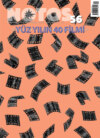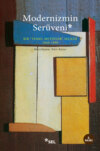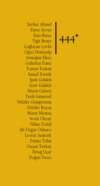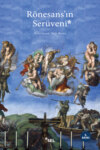Kitabı oku: «Lords of the Housetops: Thirteen Cat Tales », sayfa 10
MADAME JOLICŒUR'S CAT
Being somewhat of an age, and a widow of dignity – the late Monsieur Jolicœur has held the responsible position under Government of Ingénieur des Ponts et Chaussées – yet being also of a provocatively fresh plumpness, and a Marseillaise, it was of necessity that Madame Veuve Jolicœur, on being left lonely in the world save for the companionship of her adored Shah de Perse, should entertain expectations of the future that were antipodal and antagonistic: on the one hand, of an austere life suitable to a widow of a reasonable maturity and of an assured position; on the other hand, of a life, not austere, suitable to a widow still of a provocatively fresh plumpness and by birth a Marseillaise.
Had Madame Jolicœur possessed a severe temperament and a resolute mind – possessions inherently improbable, in view of her birthplace – she would have made her choice between these equally possible futures with a promptness and with a finality that would have left nothing at loose ends. So endowed, she would have emphasized her not excessive age by a slightly excessive gravity of dress and of deportment; and would have adorned it, and her dignified widowhood, by becoming dévote: and thereafter, clinging with a modest ostentation only to her piety, would have radiated, as time made its marches, an always increasingly exemplary grace. But as Madame Jolicœur did not possess a temperament that even bordered on severity, and as her mind was a sort that made itself up in at least twenty different directions in a single moment – as she was, in short, an entirely typical and therefore an entirely delightful Provençale – the situation was so much too much for her that, by the process of formulating a great variety of irreconcilable conclusions, she left everything at loose ends by not making any choice at all.
In effect, she simply stood attendant upon what the future had in store for her: and meanwhile avowedly clung only, in default of piety, to her adored Shah de Perse – to whom was given, as she declared in disconsolate negligence of her still provocatively fresh plumpness, all of the bestowable affection that remained in the devastated recesses of her withered heart.
To preclude any possibility of compromising misunderstanding, it is but just to Madame Jolicœur to explain at once that the personage thus in receipt of the contingent remainder of her blighted affections – far from being, as his name would suggest, an Oriental potentate temporarily domiciled in Marseille to whom she had taken something more than a passing fancy – was a Persian superb black cat; and a cat of such rare excellencies of character and of acquirements as fully to deserve all of the affection that any heart of the right sort – withered, or otherwise – was disposed to bestow upon him.
Cats of his perfect beauty, of his perfect grace, possibly might be found, Madame Jolicœur grudgingly admitted, in the Persian royal catteries; but nowhere else in the Orient, and nowhere at all in the Occident, she declared with an energetic conviction, possibly could there be found a cat who even approached him in intellectual development, in wealth of interesting accomplishments, and, above all, in natural sweetness of disposition – a sweetness so marked that even under extreme provocation he never had been known to thrust out an angry paw. This is not to say that the Shah de Perse was a characterless cat, a lymphatic nonentity. On occasion – usually in connection with food that was distasteful to him – he could have his resentments; but they were manifested always with a dignified restraint. His nearest approach to ill-mannered abruptness was to bat with a contemptuous paw the offending morsel from his plate; which brusque act he followed by fixing upon the bestower of unworthy food a coldly, but always politely, contemptuous stare. Ordinarily, however, his displeasure – in the matter of unsuitable food, or in other matters – was exhibited by no more overt action than his retirement to a corner – he had his choices in corners, governed by the intensity of his feelings – and there seating himself with his back turned scornfully to an offending world. Even in his kindliest corner, on such occasions, the expression of his scornful back was as a whole volume of wingéd words!
But the rare little cat tantrums of the Shah de Perse – if to his so gentle excesses may be applied so strong a term – were but as sun-spots on the effulgence of his otherwise constant amiability. His regnant desires, by which his worthy little life was governed, were to love and to please. He was the most cuddlesome cat, Madame Jolicœur unhesitatingly asserted, that ever had lived; and he had a purr – softly thunderous and winningly affectionate – that was in keeping with his cuddlesome ways. When, of his own volition, he would jump into her abundant lap and go to burrowing with his little soft round head beneath her soft round elbows, the while gurglingly purring forth his love for her, Madame Jolicœur, quite justifiably, at times was moved to tears. Equally was his sweet nature exhibited in his always eager willingness to show off his little train of cat accomplishments. He would give his paw with a courteous grace to any lady or gentleman – he drew the caste line rigidly – who asked for it. For his mistress, he would spring to a considerable height and clutch with his two soft paws – never by any mistake scratching – her outstretched wrist, and so would remain suspended while he delicately nibbled from between her fingers her edible offering. For her, he would make an almost painfully real pretence of being a dead cat: extending himself upon the rug with an exaggeratedly death-like rigidity – and so remaining until her command to be alive again brought him briskly to rub himself, rising on his hind legs and purring mellowly, against her comfortable knees.
All of these interesting tricks, with various others that may be passed over, he would perform with a lively zest whenever set at them by a mere word of prompting; but his most notable trick was a game in which he engaged with his mistress not at word of command, but – such was his intelligence – simply upon her setting the signal for it. The signal was a close-fitting white cap – to be quite frank, a night-cap – that she tied upon her head when it was desired that the game should be played.
It was of the game that Madame Jolicœur should assume her cap with an air of detachment and aloofness: as though no such entity as the Shah de Perse existed, and with an insisted-upon disregard of the fact that he was watching her alertly with his great golden eyes. Equally was it of the game that the Shah de Perse should affect – save for his alert watching – a like disregard of the doings of Madame Jolicœur: usually by an ostentatious pretence of washing his upraised hind leg, or by a like pretence of scrubbing his ears. These conventions duly having been observed, Madame Jolicœur would seat herself in her especial easy-chair, above the relatively high back of which her night-capped head a little rose. Being so seated, always with the air of aloofness and detachment, she would take a book from the table and make a show of becoming absorbed in its contents. Matters being thus advanced, the Shah de Perse would make a show of becoming absorbed in searchings for an imaginary mouse – but so would conduct his fictitious quest for that supposititious animal as eventually to achieve for himself a strategic position close behind Madame Jolicœur's chair. Then, dramatically, the pleasing end of the game would come: as the Shah de Perse – leaping with the distinguishing grace and lightness of his Persian race – would flash upward and "surprise" Madame Jolicœur by crowning her white-capped head with his small black person, all a-shake with triumphant purrs! It was a charming little comedy – and so well understood by the Shah de Perse that he never ventured to essay it under other, and more intimate, conditions of night-cap use; even as he never failed to engage in it with spirit when his white lure properly was set for him above the back of Madame Jolicœur's chair. It was as though to the Shah de Perse the white night-cap of Madame Jolicœur, displayed in accordance with the rules of the game, were an oriflamme: akin to, but in minor points differing from, the helmet of Navarre.
Being such a cat, it will be perceived that Madame Jolicœur had reason in her avowed intention to bestow upon him all of the bestowable affection remnant in her withered heart's devastated recesses; and, equally, that she would not be wholly desolate, having such a cat to comfort her, while standing impartially attendant upon the decrees of fate.
To assert that any woman not conspicuously old and quite conspicuously of a fresh plumpness could be left in any city isolate, save for a cat's company, while the fates were spinning new threads for her, would be to put a severe strain upon credulity. To make that assertion specifically of Madame Jolicœur, and specifically – of all cities in the world! – of Marseille, would be to strain credulity fairly to the breaking point. On the other hand, to assert that Madame Jolicœur, in defence of her isolation, was disposed to plant machine-guns in the doorway of her dwelling – a house of modest elegance on the Pavé d'Amour, at the crossing of the Rue Bausset – would be to go too far. Nor indeed – aside from the fact that the presence of such engines of destruction would not have been tolerated by the other residents of the quietly respectable Pavé d'Amour – was Madame Jolicœur herself, as has been intimated, temperamentally inclined to go to such lengths as machine-guns in maintenance of her somewhat waveringly desired privacy in a merely cat-enlivened solitude.
Between these widely separated extremes of conjectural possibility lay the mediate truth of the matter: which truth – thus resembling precious gold in its valueless rock matrix – lay embedded in, and was to be extracted from, the irresponsible utterances of the double row of loosely hung tongues, always at hot wagging, ranged along the two sides of the Rue Bausset.
Madame Jouval, a milliner of repute – delivering herself with the generosity due to a good customer from whom an order for a trousseau was a not unremote possibility, yet with the acumen perfected by her professional experiences – summed her views of the situation, in talk with Madame Vic, proprietor of the Vic bakery, in these words: "It is of the convenances, and equally is it of her own melancholy necessities, that this poor Madame retires for a season to sorrow in a suitable seclusion in the company of her sympathetic cat. Only in such retreat can she give vent fitly to her desolating grief. But after storm comes sunshine: and I am happily assured by her less despairing appearance, and by the new mourning that I have been making for her, that even now, from the bottomless depth of her affliction, she looks beyond the storm."
"I well believe it!" snapped Madame Vic. "That the appearance of Madame Jolicœur at any time has been despairing is a matter that has escaped my notice. As to the mourning that she now wears, it is a defiance of all propriety. Why, with no more than that of colour in her frock" – Madame Vic upheld her thumb and finger infinitesimally separated – "and with a mere pin-point of a flower in her bonnet, she would be fit for the opera!"
Madame Vic spoke with a caustic bitterness that had its roots. Her own venture in second marriage had been catastrophic – so catastrophic that her neglected bakery had gone very much to the bad. Still more closely to the point, Madame Jolicœur – incident to finding entomologic specimens misplaced in her breakfast-rolls – had taken the leading part in an interchange of incivilities with the bakery's proprietor, and had withdrawn from it her custom.
"And even were her mournings not a flouting of her short year of widowhood," continued Madame Vic, with an acrimony that abbreviated the term of widowhood most unfairly – "the scores of eligible suitors who openly come streaming to her door, and are welcomed there, are as trumpets proclaiming her audacious intentions and her indecorous desires. Even Monsieur Brisson is in that outrageous procession! Is it not enough that she should entice a repulsively bald-headed notary and an old rake of a major to make their brazen advances, without suffering this anatomy of a pharmacien to come treading on their heels? – he with his hands imbrued in the life-blood of the unhappy old woman whom his mismade prescription sent in agony to the tomb! Pah! I have no patience with her! She and her grief and her seclusion and her sympathetic cat, indeed! It all is a tragedy of indiscretion – that shapes itself as a revolting farce!"
It will be observed that Madame Vic, in framing her bill of particulars, practically reduced her alleged scores of Madame Jolicœur's suitors to precisely two – since the bad third was handicapped so heavily by that notorious matter of the mismade prescription as to be a negligible quantity, quite out of the race. Indeed, it was only the preposterous temerity of Monsieur Brisson – despairingly clutching at any chance to retrieve his broken fortunes – that put him in the running at all. With the others, in such slighting terms referred to by Madame Vic – Monsieur Peloux, a notary of standing, and the Major Gontard, of the Twenty-ninth of the Line – the case was different. It had its sides.
"That this worthy lady reasonably may desire again to wed," declared Monsieur Fromagin, actual proprietor of the Épicerie Russe – an establishment liberally patronized by Madame Jolicœur – "is as true as that when she goes to make her choosings between these estimable gentlemen she cannot make a choice that is wrong."
Madame Gauthier, a clear-starcher of position, to whom Monsieur Fromagin thus addressed himself, was less broadly positive. "That is a matter of opinion," she answered; and added: "To go no further than the very beginning, Monsieur should perceive that her choice has exactly fifty chances in the hundred of going wrong: lying, as it does, between a meagre, sallow-faced creature of a death-white baldness, and a fine big pattern of a man, strong and ruddy, with a close-clipped but abundant thatch on his head, and a moustache that admittedly is superb!"
"Ah, there speaks the woman!" said Monsieur Fromagin, with a patronizing smile distinctly irritating. "Madame will recognize – if she will but bring herself to look a little beyond the mere outside – that what I have advanced is not a matter of opinion but of fact. Observe: Here is Monsieur Peloux – to whose trifling leanness and aristocratic baldness the thoughtful give no attention – easily a notary in the very first rank. As we all know, his services are sought in cases of the most exigent importance – "
"For example," interrupted Madame Gauthier, "the case of the insurance solicitor, in whose countless defraudings my own brother was a sufferer: a creature of a vileness, whose deserts were unnumbered ages of dungeons – and who, thanks to the chicaneries of Monsieur Peloux, at this moment walks free as air!"
"It is of the professional duty of advocates," replied Monsieur Fromagin, sententiously, "to defend their clients; on the successful discharge of that duty – irrespective of minor details – depends their fame. Madame neglects the fact that Monsieur Peloux, by his masterly conduct of the case that she specifies, won for himself from his legal colleagues an immense applause."
"The more shame to his legal colleagues!" commented Madame Gauthier curtly.
"But leaving that affair quite aside," continued Monsieur Fromagin airily, but with insistence, "here is this notable advocate who reposes his important homages at Madame Jolicœur's feet: he a man of an age that is suitable, without being excessive; who has in the community an assured position; whose more than moderate wealth is known. I insist, therefore, that should she accept his homages she would do well."
"And I insist," declared Madame Gauthier stoutly, "that should she turn her back upon the Major Gontard she would do most ill!"
"Madame a little disregards my premises," Monsieur Fromagin spoke in a tone of forbearance, "and therefore a little argues – it is the privilege of her sex – against the air. Distinctly, I do not exclude from Madame Jolicœur's choice that gallant Major: whose rank – now approaching him to the command of a regiment, and fairly equalling the position at the bar achieved by Monsieur Peloux – has been won, grade by grade, by deeds of valour in his African campaignings which have made him conspicuous even in the army that stands first in such matters of all the armies of the world. Moreover – although, admittedly, in that way Monsieur Peloux makes a better showing – he is of an easy affluence. On the Camargue he has his excellent estate in vines, from which comes a revenue more than sufficing to satisfy more than modest wants. At Les Martigues he has his charming coquette villa, smothered in the flowers of his own planting, to which at present he makes his agreeable escapes from his military duties; and in which, when his retreat is taken, he will pass softly his sunset years. With these substantial points in his favour, the standing of the Major Gontard in this matter practically is of a parity with the standing of Monsieur Peloux. Equally, both are worthy of Madame Jolicœur's consideration: both being able to continue her in the life of elegant comfort to which she is accustomed; and both being on a social plane – it is of her level accurately – to which the widow of an ingénieur des ponts et chaussées neither steps up nor steps down. Having now made clear, I trust, my reasonings, I repeat the proposition with which Madame took issue: When Madame Jolicœur goes to make her choosings between these estimable gentlemen she cannot make a choice that is wrong."
"And I repeat, Monsieur," said Madame Gauthier, lifting her basket from the counter, "that in making her choosings Madame Jolicœur either goes to raise herself to the heights of a matured happiness, or to plunge herself into bald-headed abysses of despair. Yes, Monsieur, that far apart are her choosings!" And Madame Gauthier added, in communion with herself as she passed to the street with her basket: "As for me, it would be that adorable Major by a thousand times!"
As was of reason, since hers was the first place in the matter, Madame Jolicœur herself carried on debatings – in the portion of her heart that had escaped complete devastation – identical in essence with the debatings of her case which went up and down the Rue Bausset.
Not having become dévote – in the year and more of opportunity open to her for a turn in that direction – one horn of her original dilemma had been eliminated, so to say, by atrophy. Being neglected, it had withered: with the practical result that out of her very indecisions had come a decisive choice. But to her new dilemma, of which the horns were the Major and the Notary – in the privacy of her secret thoughts she made no bones of admitting that this dilemma confronted her – the atrophying process was not applicable; at least, not until it could be applied with a sharp finality. Too long dallied with, it very well might lead to the atrophy of both of them in dudgeon; and thence onward, conceivably, to her being left to cling only to the Shah de Perse for all the remainder of her days.
Therefore, to the avoidance of that too radical conclusion, Madame Jolicœur engaged in her debatings briskly: offering to herself, in effect, the balanced arguments advanced by Monsieur Fromagin in favour equally of Monsieur Peloux and of the Major Gontard; taking as her own, with moderating exceptions and emendations, the views of Madame Gauthier as to the meagreness and pallid baldness of the one and the sturdiness and gallant bearing of the other; considering, from the standpoint of her own personal knowledge in the premises, the Notary's disposition toward a secretive reticence that bordered upon severity, in contrast with the cordially frank and debonair temperament of the Major; and, at the back of all, keeping well in mind the fundamental truths that opportunity ever is evanescent and that time ever is on the wing.
As the result of her debatings, and not less as the result of experience gained in her earlier campaigning, Madame Jolicœur took up a strategic position nicely calculated to inflame the desire for, by assuming the uselessness of, an assault. In set terms, confirming particularly her earlier and more general avowal, she declared equally to the Major and to the Notary that absolutely the whole of her bestowable affection – of the remnant in her withered heart available for distribution – was bestowed upon the Shah de Perse: and so, with an alluring nonchalance, left them to draw the logical conclusion that their strivings to win that desirable quantity were idle – since a definite disposition of it already had been made.
The reply of the Major Gontard to this declaration was in keeping with his known amiability, but also was in keeping with his military habit of command. "Assuredly," he said, "Madame shall continue to bestow, within reason, her affections upon Monsieur le Shah; and with them that brave animal – he is a cat of ten thousand – shall have my affections as well. Already, knowing my feeling for him, we are friends – as Madame shall see to her own convincing." Addressing himself in tones of kindly persuasion to the Shah de Perse, he added: "Viens, Monsieur!" – whereupon the Shah de Perse instantly jumped himself to the Major's knee and broke forth, in response to a savant rubbing of his soft little jowls, into his gurgling purr. "Voilà, Madame!" continued the Major. "It is to be perceived that we have our good understandings, the Shah de Perse and I. That we all shall live happily together tells itself without words. But observe" – of a sudden the voice of the Major thrilled with a deep earnestness, and his style of address changed to a familiarity that only the intensity of his feeling condoned – "I am resolved that to me, above all, shall be given thy dear affections. Thou shalt give me the perfect flower of them – of that fact rest thou assured. In thy heart I am to be the very first – even as in my heart thou thyself art the very first of all the world. In Africa I have had my successes in my conquests and holdings of fortresses. Believe me, I shall have an equal success in conquering and in holding the sweetest fortress in France!"
Certainly, the Major Gontard had a bold way with him. But that it had its attractions, not to say its compellings, Madame Jolicœur could not honestly deny.
On the part of the Notary – whose disposition, fostered by his profession, was toward subtlety rather than toward boldness – Madame Jolicœur's declaration of cat rights was received with no such belligerent blare of trumpets and beat of drums. He met it with a light show of banter – beneath which, to come to the surface later, lay hidden dark thoughts.
"Madame makes an excellent pleasantry," he said with a smile of the blandest. "Without doubt, not a very flattering pleasantry – but I know that her denial of me in favour of her cat is but a jesting at which we both may laugh. And we may laugh together the better because, in the roots of her jesting, we have our sympathies. I also have an intensity of affection for cats" – to be just to Monsieur Peloux, who loathed cats, it must be said that he gulped as he made this flagrantly untruthful statement – "and with this admirable cat, so dear to Madame, it goes to make itself that we speedily become enduring friends."
Curiously enough – a mere coincidence, of course – as the Notary uttered these words so sharply at points with veracity, in the very moment of them, the Shah de Perse stiffly retired into his sulkiest corner and turned what had every appearance of being a scornful back upon the world.
Judiciously ignoring this inopportunely equivocal incident, Monsieur Peloux reverted to the matter in chief and concluded his deliverance in these words: "I well understand, I repeat, that Madame for the moment makes a comedy of herself and of her cat for my amusing. But I persuade myself that her droll fancyings will not be lasting, and that she will be serious with me in the end. Until then – and then most of all – I am at her feet humbly: an unworthy, but a very earnest, suppliant for her good-will. Should she have the cruelty to refuse my supplication, it will remain with me to die in an unmerited despair!"
Certainly, this was an appeal – of a sort. But even without perceiving the mitigating subtlety of its comminative final clause – so skilfully worded as to leave Monsieur Peloux free to bring off his threatened unmeritedly despairing death quite at his own convenience – Madame Jolicœur did not find it satisfying. In contrast with the Major Gontard's ringingly audacious declarations of his habits in dealing with fortresses, she felt that it lacked force. And, also – this, of course, was a sheer weakness – she permitted herself to be influenced appreciably by the indicated preferences of the Shah de Perse: who had jumped to the knee of the Major with an affectionate alacrity; and who undeniably had turned on the Notary – either by chance or by intention – a back of scorn.
As the general outcome of these several developments, Madame Jolicœur's debatings came to have in them – if I so may state the trend of her mental activities – fewer bald heads and more moustaches; and her never severely set purpose to abide in a loneliness relieved only by the Shah de Perse was abandoned root and branch.
While Madame Jolicœur continued her debatings – which, in their modified form, manifestly were approaching her to conclusions – water was running under bridges elsewhere.
In effect, her hesitancies produced a period of suspense that gave opportunity for, and by the exasperating delay of it stimulated, the resolution of the Notary's dark thoughts into darker deeds. With reason, he did not accept at its face value Madame Jolicœur's declaration touching the permanent bestowal of her remnant affections; but he did believe that there was enough in it to make the Shah de Perse a delaying obstacle to his own acquisition of them. When obstacles got in this gentleman's way it was his habit to kick them out of it – a habit that had not been unduly stunted by half a lifetime of successful practice at the criminal bar.
Because of his professional relations with them, Monsieur Peloux had an extensive acquaintance among criminals of varying shades of intensity – at times, in his dubious doings, they could be useful to him – hidden away in the shadowy nooks and corners of the city; and he also had his emissaries through whom they could be reached. All the conditions thus standing attendant upon his convenience, it was a facile matter for him to make an appointment with one of these disreputables at a cabaret of bad record in the Quartier de la Tourette: a region – bordering upon the north side of the Vieux Port – that is at once the oldest and the foulest quarter of Marseille.
In going to keep this appointment – as was his habit on such occasions, in avoidance of possible spying upon his movements – he went deviously: taking a cab to the Bassin de Carènage, as though some maritime matter engaged him, and thence making the transit of the Vieux Port in a bateau mouche. It was while crossing in the ferryboat that a sudden shuddering beset him: as he perceived with horror – but without repentance – the pit into which he descended. In his previous, always professional, meetings with criminals his position had been that of unassailable dominance. In his pending meeting – since he himself would be not only a criminal but an inciter to crime – he would be, in the essence of the matter, the under dog. Beneath his seemly black hat his bald head went whiter than even its normal deathly whiteness, and perspiration started from its every pore. Almost with a groan, he removed his hat and dried with his handkerchief what were in a way his tears of shame.
Over the interview between Monsieur Peloux and his hireling – cheerfully moistened, on the side of the hireling, with absinthe of a vileness in keeping with its place of purchase – decency demands the partial drawing of a veil. In brief, Monsieur Peloux – his guilty eyes averted, the shame-tears streaming afresh from his bald head – presented his criminal demand and stated the sum that he would pay for its gratification. This sum – being in keeping with his own estimate of what it paid for – was so much in excess of the hireling's views concerning the value of a mere cat-killing that he fairly jumped at it.
"Be not disturbed, Monsieur!" he replied, with the fervour of one really grateful, and with the expansive extravagance of a Marseillais keyed up with exceptionally bad absinthe. "Be not disturbed in the smallest! In this very coming moment this camel of a cat shall die a thousand deaths; and in but another moment immeasurable quantities of salt and ashes shall obliterate his justly despicable grave! To an instant accomplishment of Monsieur's wishes I pledge whole-heartedly the word of an honest man."
Actually – barring the number of deaths to be inflicted on the Shah de Perse, and the needlessly defiling concealment of his burial-place – this radical treatment of the matter was precisely what Monsieur Peloux desired; and what, in terms of innuendo and euphuism, he had asked for. But the brutal frankness of the hireling, and his evident delight in sinning for good wages, came as an arousing shock to the enfeebled remnant of the Notary's better nature – with a resulting vacillation of purpose to which he would have risen superior had he been longer habituated to the ways of crime.
"No! No!" he said weakly. "I did not mean that – by no means all of that. At least – that is to say – you will understand me, my good man, that enough will be done if you remove the cat from Marseille. Yes, that is what I mean – take it somewhere. Take it to Cassis, to Arles, to Avignon – where you will – and leave it there. The railway ticket is my charge – and, also, you have an extra napoléon for your refreshment by the way. Yes, that suffices. In a bag, you know – and soon!"










